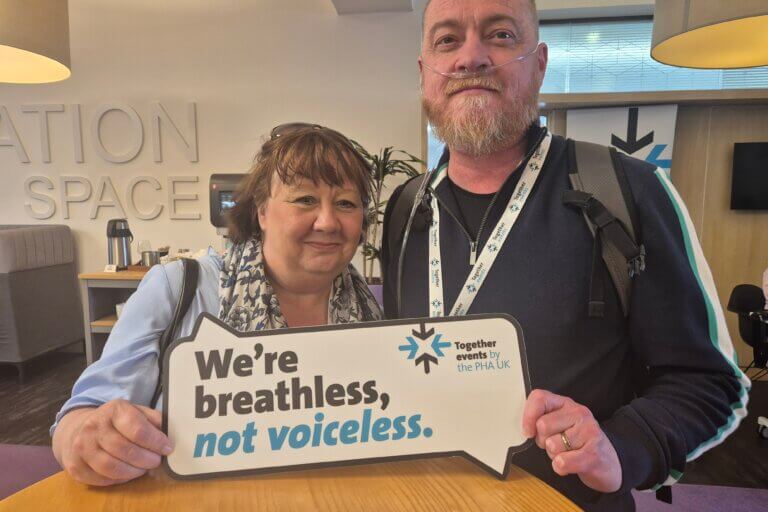
A headline-grabbing debate in Parliament last night (1st July) has resulted in further changes to the government’s proposals to amend parts of the benefits system including Personal independence Payments (PIP) and Universal Credit (UC).
Initial proposals announced in March involved tightening the eligibility criteria for PIP*, and freezing the rate paid for the health element of UC** – as well as raising the age of eligibility for this.
Last week, a partial U-turn was announced, with the government deciding the changes would apply only to new applicants – essentially creating a two-tier system.
Whilst debating the reform bill yesterday, the government back-tracked further, saying it would remove the proposed changes to PIP from the bill completely (for now).
The bill was voted through by a small margin last night, but this does not mean the changes will go ahead. They will be debated and reviewed again, so nothing is set in stone.
We know that many people in our PH community rely on PIP and that the events of the last few months and weeks may have caused worry and confusion. Whatever ends up being decided, here at the PHA UK we will do everything we can to help you understand the reforms and support you to get what you are entitled to.
Disability groups and charities across the UK are united in their criticism of the proposals and the way things have evolved, and there are many, many people who are fighting your corner. You’re not on your own.
If hearing about the changes is making you feel anxious, it’s important to limit how much time you spend watching or reading the news or following the topic on social media. Remember to take your information from trusted sources only.
*The proposed changes to PIP announced in March 2025
(Please note these proposed changes were only for the daily living component of PIP. The mobility component would not be affected).
PIP is awarded by assessing how someone can manage in daily life with a physical or mental health condition. Applicants must answer a series of questions about tasks such as washing, dressing and preparing food, and each answer is scored points from zero (if someone experiences no difficulty with the task) up to 12 (severe difficulty).
As it stands, applicants must score a total of eight points across the questions to be awarded the standard rate of PIP (a total of 12 is required for the enhanced rate). However, in March the government said that from November 2026, applicants must score at least four points in at least one question to qualify for either rate.
The government also proposed more frequent assessments for PIP for most people, but said those with the most severe life-long illnesses and disabilities would no longer need regular assessments to keep the benefit. It is still not clear which conditions would be included under this definition.
In June 2025, the government announced the above changes would only apply to new applicants.
**The proposed changes to Universal Credit announced in March 2025
As it stands, if you have limited capacity to work because of a long-term condition or disability, you can claim an additional £416.19 a month in Universal Credit (UC) – on top of the standard level of £393.45.
The changes announced by the government in March would mean the ‘health element’ will reduce whist the ‘standard level’ will increase.
They said only those aged 22 or over would be able to access the health element of UC. Those aged 18-21 who live with disabilities or chronic health conditions would no longer be eligible for it and would only be able to claim the standard level.
If you are 22 or over and currently claiming the health element of UC, this would be frozen at the current rate of £97 a week until 2029/30.
For new claimants (claiming from April 2026) the health element would reduce to £50 a week and would then be frozen at this level until 2029/30.
When announcing the reforms to the health element of UC, the government said: “Those with the most severe, life-long health conditions, who have no prospect of improvement and will never be able to work, will see their incomes protected through an additional premium.”
Changes to the standard level of UC:The proposals announced in March said thatfrom April 2026, the standard payment level for UC would rise above inflation for new and existing claimants. You do not need to have a health condition or disability to claim the standard level.

As part of a headline-grabbing debate in Parliament yesterday (1st July), there have been further changes to the government’s proposals to amend parts of the benefits system including Personal independence Payments (PIP) and Universal Credit (UC).
2 July 2025
PHA UK Chair Dr Iain Armstrong took to the stage at a major health and care conference in June, as part of a panel discussing the NHS England Breathlessness Pathway.
13 June 2025
PHA UK members have helped secure funding for an innovative new patient toolkit that aims to help people manage their PH via a convenient app.
2 June 2025
Our latest 'Together' event saw patients cared for by the Scottish Pulmonary Vascular Disease Unit gather with loved ones and their PH team in Glasgow.
5 May 2025
Dr Iain Armstrong, Chair of the PHA UK, has written this open letter in response to the NHS reforms that have been announced in recent weeks.
14 April 2025
Travelling from Cambridge to Dublin is no short journey, but Conor Keeling is determined to complete it on just two wheels to say thank you for his PH care. Here, he explains why…
10 April 2025